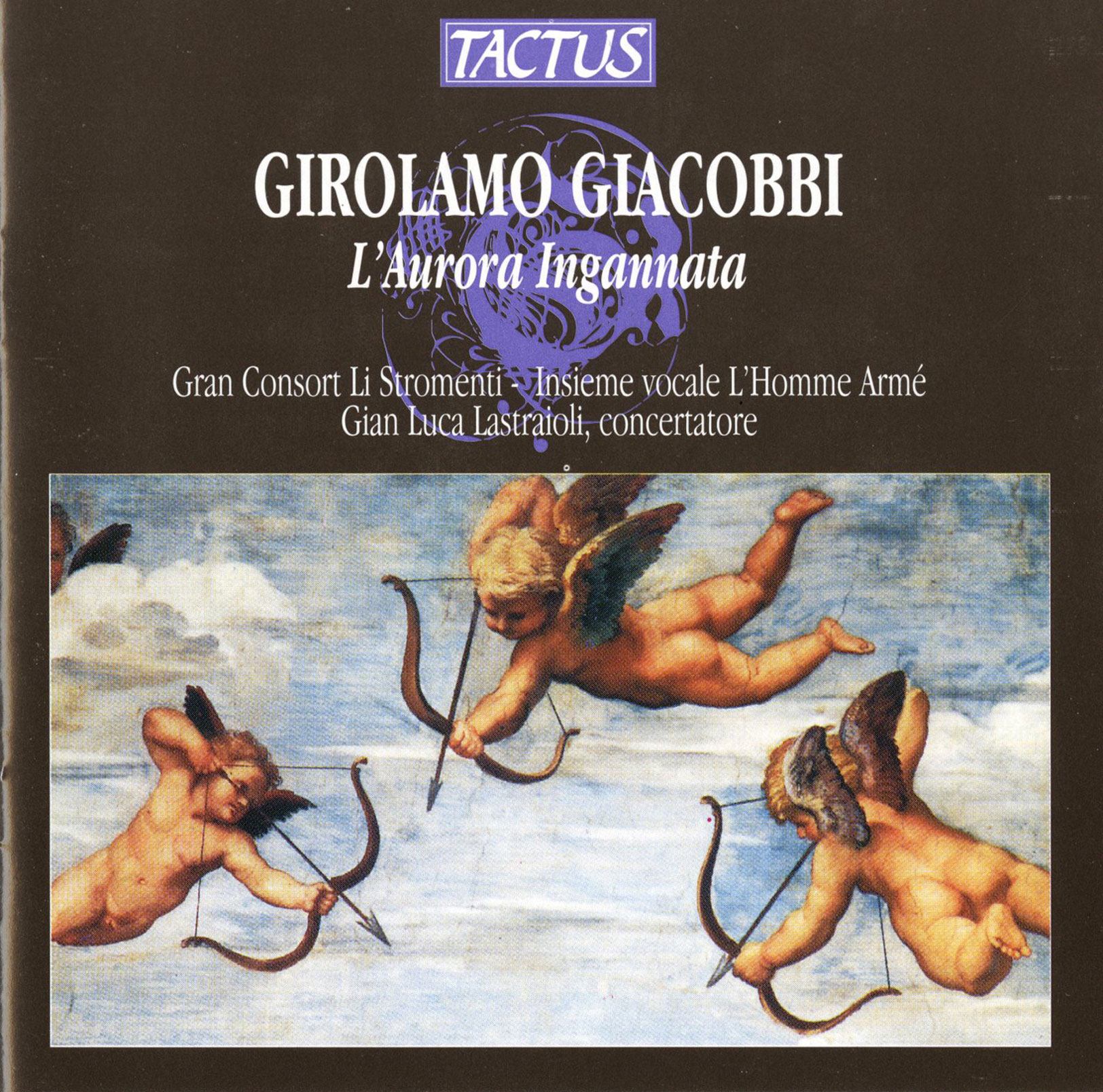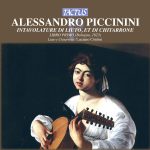GIACOBBI GIROLAMO
Giacobbi’s writing in Aurora strongly reflects the widely known compositional style of his “Florentine” contemporaries, Peri and Caccini.
His opera is indeed founded principally on an agile and harmonically interesting recitative, occasionally broken up by strophic arias and homophonic choruses.
From a dramaturgical point of view as well, one finds in L’Aurora Ingannata certain situations and solutions which had already been successfully employed in Florentine circles: pastoral elements such as the chorus of hunters; the unexpected echo which responds from a distance to Aurora’s laments; the “high chorus” of the Graces; the dark and gloomy writing reserved for the lords of darkness, Sleep and Morpheus.
A typical example of a “chamber” intermedio, L’Aurora thus presents in miniature all of the elements characteristic of the larger “dramma per musica” of the early seventeenth century, and may be seen as an ideal example of a genre which strongly marked the musical and dramatic life of its time.
This recording of L’Aurora Ingannata follows the edition which was published in Venice in 1608 by Giacomo Vincenti. Gian Luca Lastraioli has revised the entire score, reconstructing the orchestration (which is missing from this and all other operas of the time, with the exception of Monteverdi’s Orfeo), and has realized the basso continuo.
In accordance with a widespread musical practice of the seventeenth century, he has also inserted at proper moments instrumental “ritornelli” and “sinfonie” borrowed from contemporary musical literature, which serve to link the various dramatic scenes to each other.
Tracklist
Giacobbi, Girolamo
L'Aurora ingannata
1 - Intermedio I Scene 1: Cefalo, dove sei, garzon crudele? (Aurora, Venere) (8:39)
2 - Intermedio I Scene 2: Amor nume leggiadro (Venere, Le Grazie, Amore) (6:01)
3 - Intermedio II Scene 1: Aura dolce e dilette (Cefalo, Cacciatori, Aurora) (8:23)
4 - Intermedio II Scene 2: Fuggi, garzon feroce (Aurora, Eco, Le Grazie) (5:30)
5 - Intermedio III Scene 1: Dove vai, perche part? (Venere, Adone) (2:15)
6 - Intermedio III Scene 2: O nel silenzio involti! (Venere, Le Grazie, Sonno, Morfeo) (10:26)
7 - Intermedio IV Scene 1: O monti, o colli, o prati, ecco a voi riede (Cefalo, Sonno, Morfeo) (6:14)
8 - Intermedio IV Scene 2: O Cefalo spietato! (Aurora, Cefalo, Titone, Procri) (13:40)
- Composer: GIACOBBI GIROLAMO
- Performers: Insieme vocale L’Homme Armé – Aurora, una grazia: Santina Tomasello Venere, una grazia: Mya Fracassini Procri, una grazia, Eco: Antonia Mazzantini Cefalo: Paolo Fanciullacci, Sonno, Titone, un Cacciatore: Marcello Vargetto Morfeo, un Cacciatore: Marco Perrella, Adone, un Cacciatore: Nino Marini Amore: Paolo Maccartini – Gran Consort Li Stromenti, strumenti d’epoca – Violini: Marco Corsini, Claudia Cancellotti; viole da gamba: Rosita Ippolito, Lisa Nocentini; violone: Mario Crociani, flauti diritti: Lapo Bramanti, Martino Noferi; cornetto: Walter Walga; chitarrino napoletano: Daniele Poli; liuto: Marzio Metteoli; chitarra alla spagnola:Stefano Casarini; tiorba: Gian Luca Lastraioli; tiorba in eco: Arno Peck; clavicembalo: Stefano Lorenzetti
- Historical Period: Humanism and Renaissance
- Code: TC 563201
- Edition: 1997
- Barcode: 8007194100822
- Set: 1
- Total tracks: 8
- Total duration: 01:01:33






